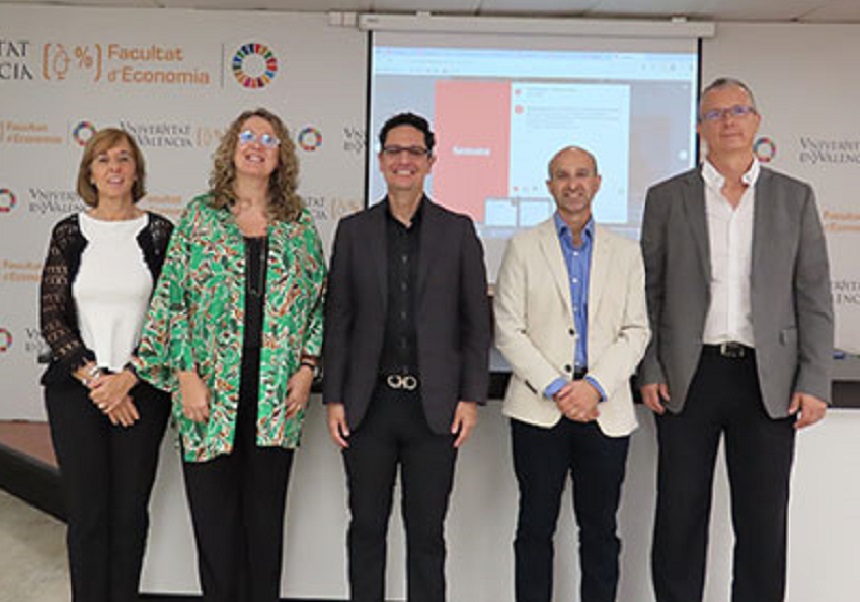
Researcher Jaime Alonso Restrepo Carmona, a student on the Official Doctorate in Social Economy at IUDESCOOP-UV, read and defended his doctoral thesis on 29 July at the Faculty of Economics of the University of Valencia (UV). The thesis, entitled ‘Antioquia's Innovation Ecosystem: Analysis of the Role of Academic ESALs in the Fourth Industrial Revolution,’ was supervised by Dr. Rubén José Cuñat Giménez, professor at IUDESCOOP
The tribunal was composed of Inmaculada Carrasco Monteagudo, from the University of Castilla-La Mancha, as chair; Lorenzo Revuelto Taboada, from the University of Valencia, as secretary; and Mercedes Herrero Montagud, from Florida Universitària, as member of the tribunal.
The doctoral thesis analyses the crucial role played by academic non-profit organisations (ESAL), those promoted by the University, in strengthening and articulating the innovation ecosystem of Antioquia, Colombia, in the context of the Fourth Industrial Revolution. The author positions these entities as catalysts for collaboration between the university, business and the state.
The study is based on the need to overcome the coordination gaps and fragmentation that exist in the innovation ecosystem, which limit its potential. To this end, the research employs a rigorous mixed design that combines qualitative analysis, through interviews with key experts in the ecosystem, with quantitative analysis based on a survey of 600 employees of the Interuniversity Services Corporation (CIS).
The most significant contribution of the thesis is that it goes beyond diagnosis to offer a concrete and applicable proposal. The author designs a management model for the innovation ecosystem, the implementation of which is exemplified in the creation of the Rotorr Corporation – Innovation Engine. Conceived as a university spin-off, this entity seeks to centralise project management through a Project Management Office (PMO) and a digital platform to improve efficiency, transparency and coordination among stakeholders.
Restrepo Carmona's research represents a significant contribution to both the field of social economy and studies on regional innovation systems. His work not only offers an in-depth analysis of the Antioquia case, but also positions itself as a possible roadmap for the formulation of public policies and the strengthening of innovation ecosystems with a focus on social and sustainable development.
This thesis lays the foundations for future research and policies that strengthen the role of academic ESALs in promoting innovation and sustainable development in Antioquia and similar contexts.





